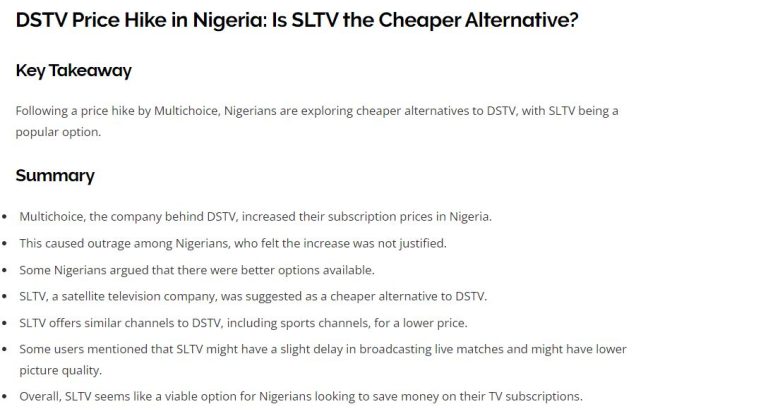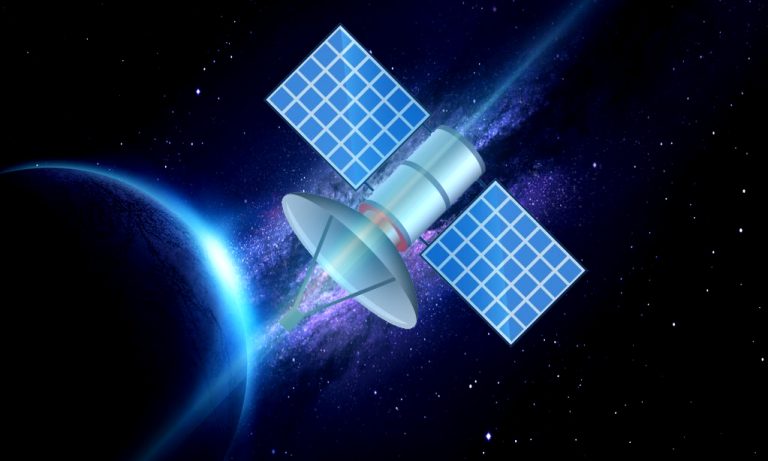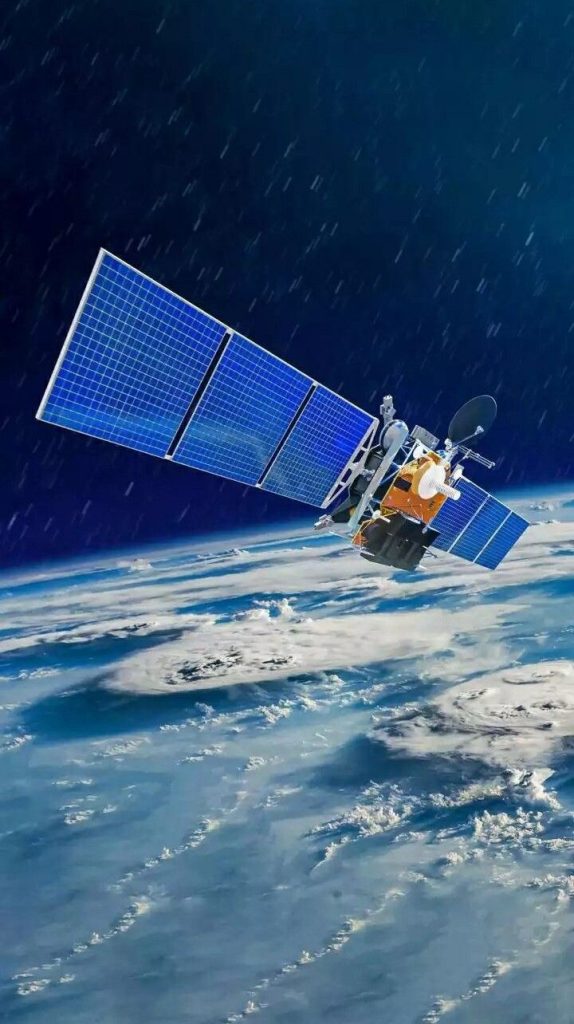DSTV Price Hike in Nigeria: Is SLTV the Cheaper Alternative?
Key Takeaway
Following a price hike by Multichoice, Nigerians are exploring cheaper alternatives to DSTV, with SLTV being a popular option.
Summary
- Multichoice, the company behind DSTV, increased their subscription prices in Nigeria.
- This caused outrage among Nigerians, who felt the increase was not justified.
- Some Nigerians argued that there were better options available.
- SLTV, a satellite television company, was suggested as a cheaper alternative to DSTV.
- SLTV offers similar channels to DSTV, including sports channels, for a lower price.
- Some users mentioned that SLTV might have a slight delay in broadcasting live matches and might have lower picture quality.
- Overall, SLTV seems like a viable option for Nigerians looking to save money on their TV subscriptions.
The Complete Story
With the recent price hike announced by Multichoice, the company behind DSTV, many Nigerians are looking for more affordable ways to enjoy their favorite TV shows and sports. This has led to a surge in interest for SLTV, a Nigerian satellite television provider. But is SLTV truly a cheaper alternative to DSTV, and what are the trade-offs?
DSTV vs. SLTV: Understanding the Price Difference
The most significant factor driving Nigerians towards SLTV is the cost. Multichoice’s price increase applies across all DSTV packages, making it a more expensive option for many viewers.
In contrast, SLTV boasts considerably lower subscription fees. They offer packages ranging from NGN 2,500 to NGN 5,000, significantly undercutting DSTV’s pricing structure. This price difference can be a major advantage for budget-conscious Nigerians.
Channels and Content: Does SLTV Offer the Same Value?
When it comes to channel selection, DSTV has traditionally held the upper hand. They offer a wider variety of channels across various genres, including international news channels, documentary channels, and movie channels.
SLTV, on the other hand, focuses primarily on entertainment and sports channels. They boast over 50 HD channels, including popular sports channels like those broadcasting the Premier League, Champions League, and La Liga. This makes them a good option for sports fans, especially those on a budget.
However, SLTV might lack the diversity of channels offered by DSTV, particularly in niche categories.
Picture Quality and Additional Considerations
Another point to consider is picture quality. Some users have reported that SLTV’s picture quality might not be on par with DSTV’s. This could be a deal-breaker for viewers who prioritize a crisp and clear viewing experience.
There might also be a slight delay in live broadcasts on SLTV compared to DSTV. This might be a minor inconvenience for some viewers, but for die-hard sports fans who want to see every play unfold in real-time, it could be a significant factor.
One additional advantage of SLTV is that some users report the ability to use their existing DSTV dish with an SLTV decoder, potentially saving on installation costs. However, it’s important to confirm compatibility before making any purchases.
The Verdict: Is SLTV Right for You?
Whether or not SLTV is the right choice for you depends on your priorities. Here’s a quick breakdown to help you decide:
Choose SLTV if:
- Price is your biggest concern, and you’re looking for a significant saving on your TV subscription.
- You’re primarily interested in sports channels and popular entertainment options.
- You’re willing to accept a potentially slight decrease in picture quality and a possible delay in live broadcasts.
Stick with DSTV if:
- You value a wider variety of channels across different genres.
- Crystal-clear picture quality is essential for your viewing experience.
- Watching live sports without any delay is a priority.
Conclusion: Exploring Your Options in a Changing Market
The recent DSTV price hike has opened the door for alternative satellite TV providers like SLTV. While SLTV offers a more affordable option, it comes with some trade-offs in terms of channel selection, picture quality, and potential broadcast delays.
Ultimately, the best choice depends on your individual needs and preferences. Consider how you use your TV subscription and what features are most important to you before making a switch. It’s also worth researching other satellite TV providers in Nigeria to see if there are other options that might be a good fit.
By carefully evaluating your priorities and the offerings of different providers, you can find the most cost-effective way to enjoy your favorite TV shows and sports in Nigeria.



